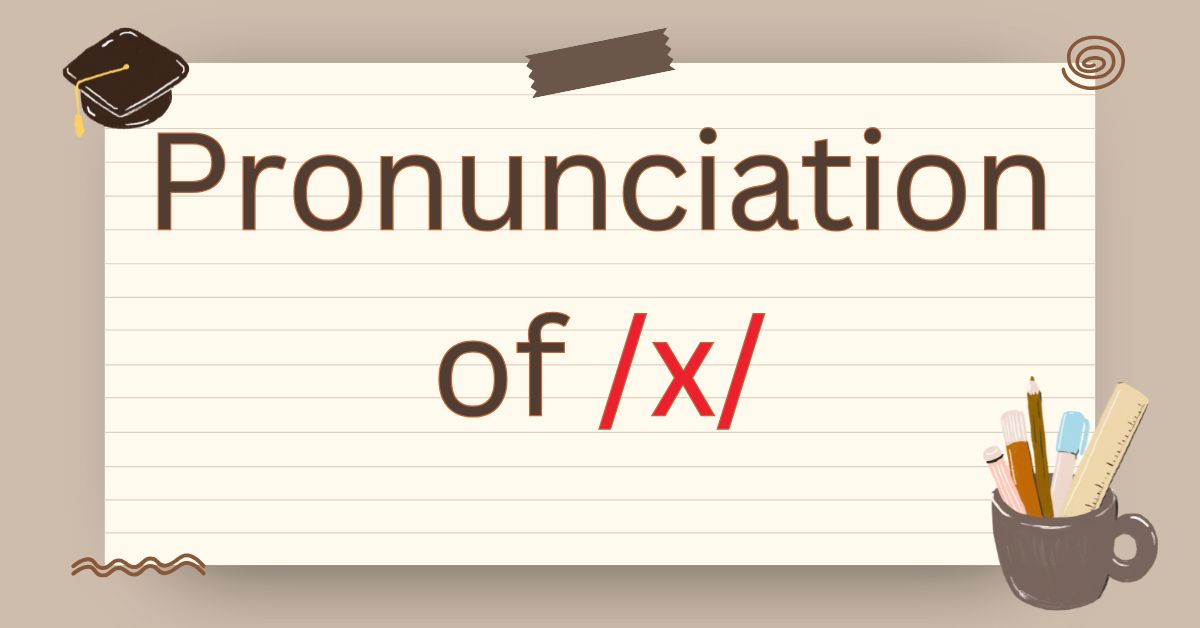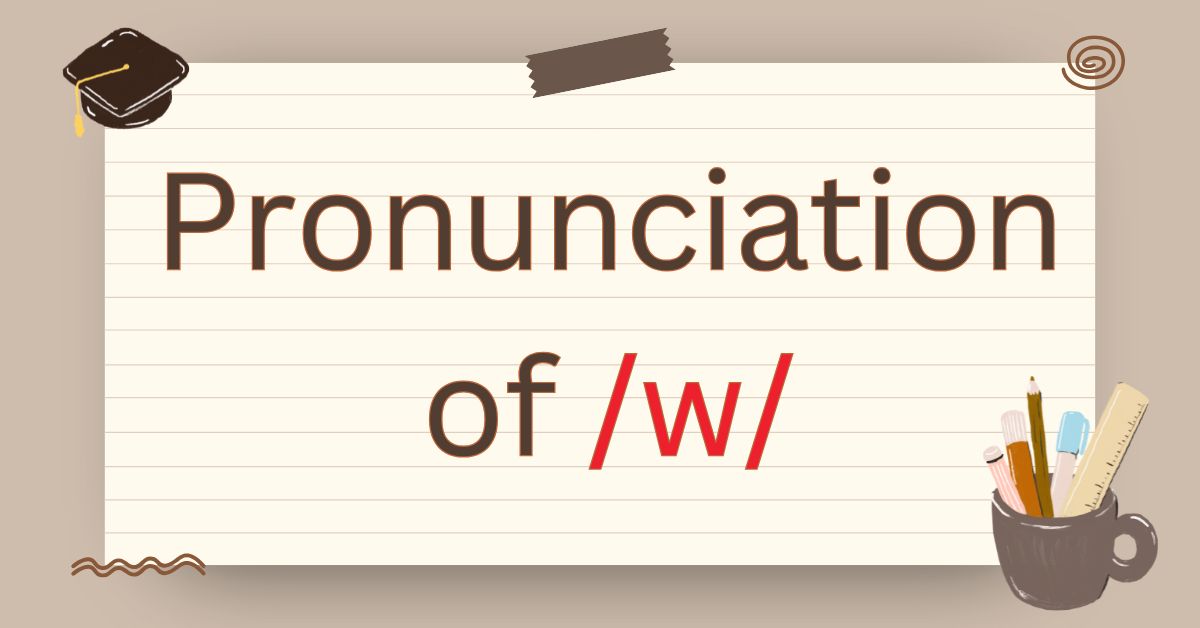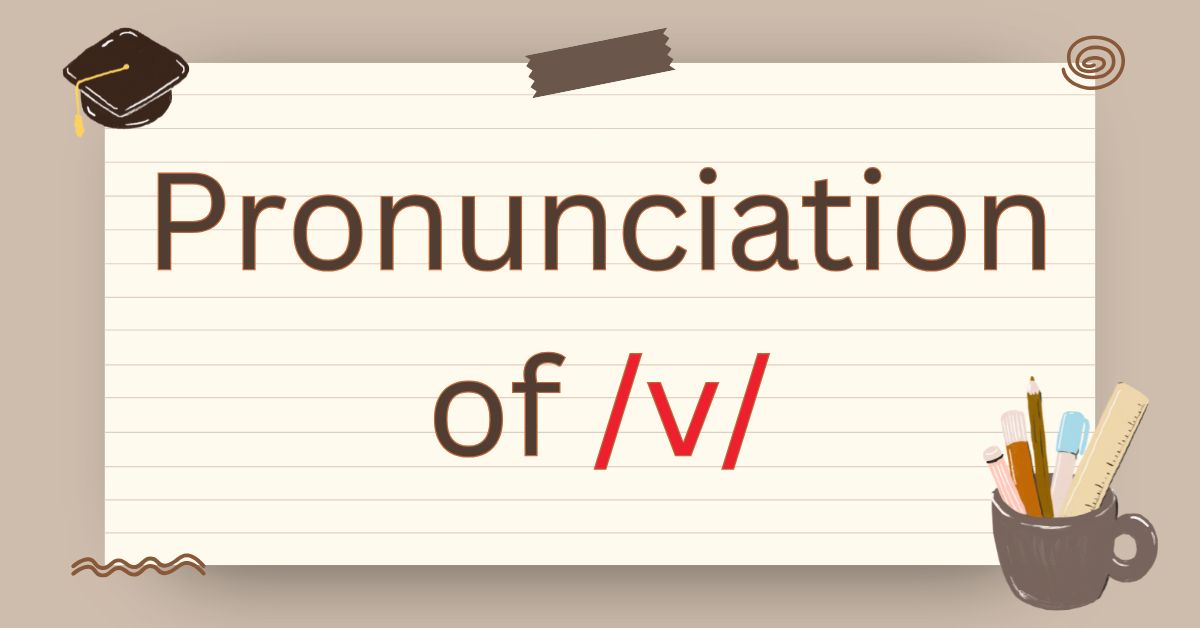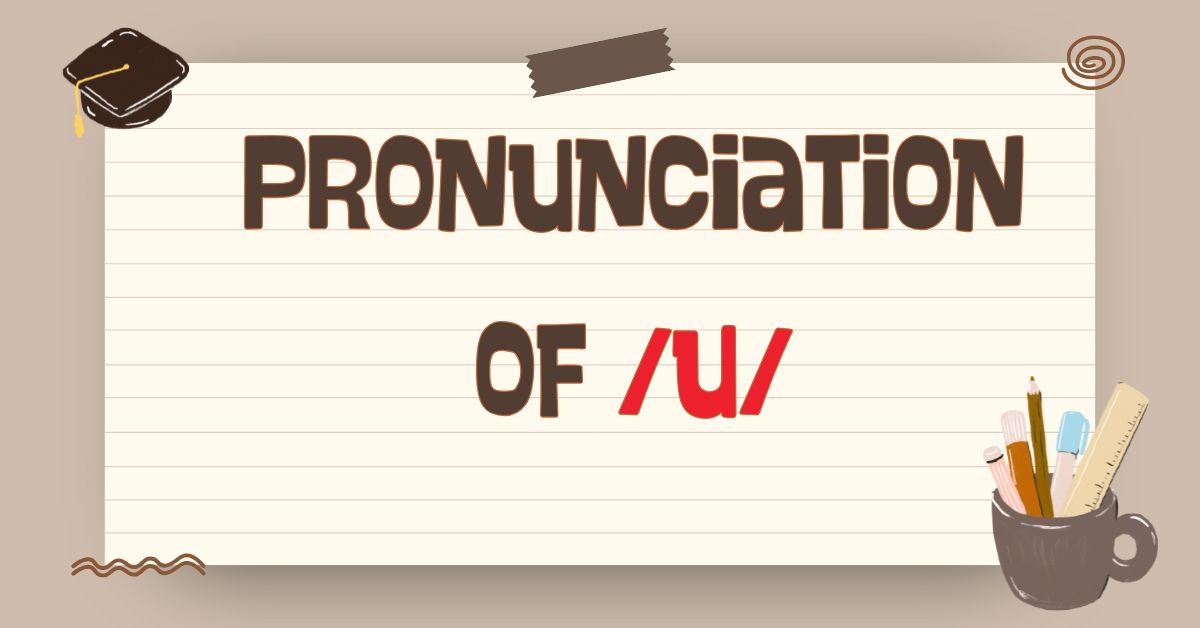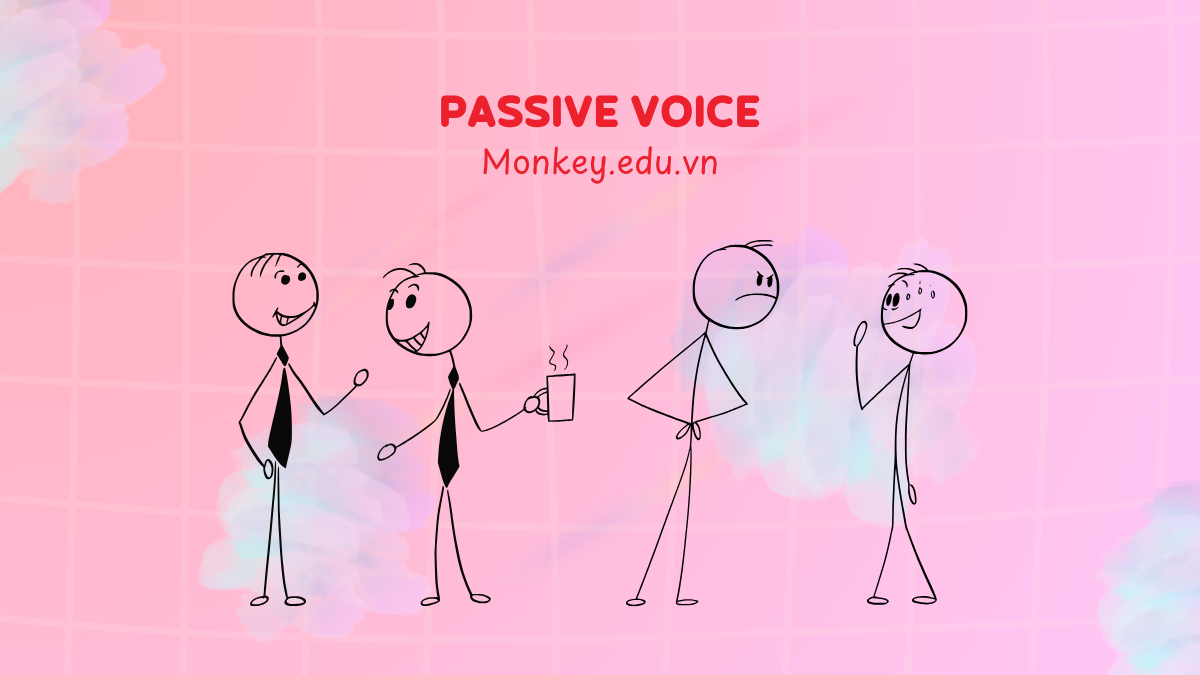เช่นเดียวกับกาลปัจจุบัน กาลในอดีตของภาษาอังกฤษก็มีทั้งอดีตกาลต่อเนื่องและอดีตกาลสมบูรณ์ อย่างไรก็ตามอดีตกาลสมบูรณ์มักสร้างความสับสนให้กับผู้เรียนภาษาอังกฤษ ในคู่มือนี้ มาสำรวจโครงสร้าง การใช้งาน และการสร้างประโยคของอดีตกาลสมบูรณ์ไปพร้อมกับ Monkey พร้อมทั้งแบบฝึกหัดตัวอย่างเพื่อฝึกปฏิบัติ
อะไรคืออดีตกาลสมบูรณ์?
อดีตกาลสมบูรณ์ใช้เพื่อบรรยายการกระทำที่เกิดขึ้นก่อนการกระทำอีกอย่างหนึ่งในอดีต โดยอดีตกาลสมบูรณ์จะแสดงการกระทำที่เกิดขึ้นก่อน ในขณะที่อดีตกาลธรรมดาจะแสดงการกระทำที่เกิดขึ้นหลัง
ตัวอย่าง:
-
After Sofie had finished her work, she went to lunch.
-
I washed the floor when the painter had gone.
-
After he had moved out, I found his letters.
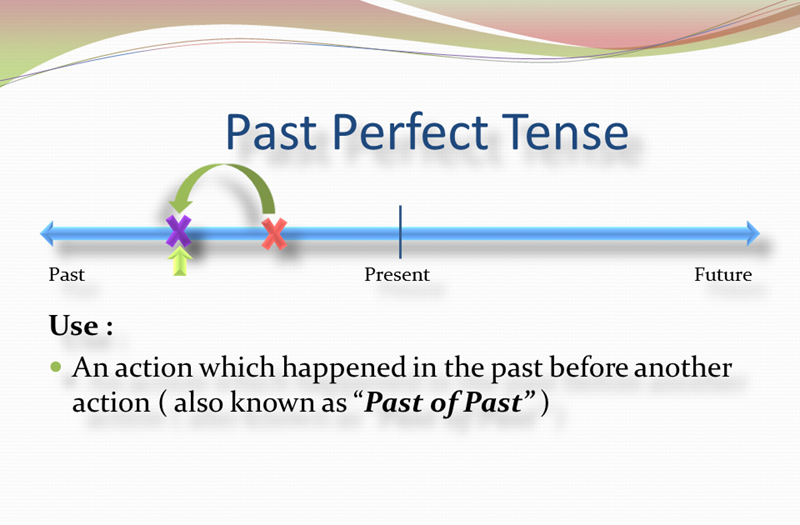
โครงสร้างของอดีตกาลสมบูรณ์
เพื่อสร้างประโยคอดีตกาลสมบูรณ์ให้ถูกต้อง คุณต้องเข้าใจโครงสร้างในแต่ละประเภทของประโยค: บอกเล่า ปฏิเสธ และคำถาม
|
ประเภทประโยค |
โครงสร้าง |
ตัวอย่าง |
|
บอกเล่า |
Subject + had + V3/ed |
You had met him before. |
|
ปฏิเสธ |
Subject + had not + V3/ed |
She had not finished her homework. |
|
คำถาม Yes/No |
Had + Subject + V3/ed? |
Had they visited the museum? Yes, she had. |
|
คำถาม WH- |
WH-word + had + Subject + V3/ed |
Where had she gone before her mother called? |
คำบอกเวลาในอดีตกาลสมบูรณ์
เพื่อระบุว่าเป็นอดีตกาลสมบูรณ์ในประโยค ให้มองหาคำหรือวลีบอกเวลาที่ใช้บ่อย เช่น:
|
คำบอกเวลา |
ตัวอย่างประโยค |
|
before, after, for, until then, by the time, prior to that time, as soon as, by |
I had learned to play the piano when I was a child. |
|
when, by the end of + past time |
When I got up this morning, my father had already left. |
|
by the time |
By the time I met you, I had worked in that company for five years. |
การใช้อดีตกาลสมบูรณ์
นี่คือกรณีหลักๆ ที่ใช้อดีตกาลสมบูรณ์พร้อมตัวอย่าง:
|
การใช้งาน |
ตัวอย่าง |
|
ใช้บรรยายการกระทำสองอย่างในอดีต โดยการกระทำหนึ่งเกิดก่อนอีกการกระทำ |
Nga had studied French before she moved to Paris. |
|
ใช้บรรยายการกระทำที่เกิดขึ้นจนถึงจุดเวลาหนึ่งในอดีต |
He had never traveled abroad until last summer. |
|
ใช้บรรยายการกระทำที่เกิดขึ้นก่อนเวลาที่กำหนดในอดีต |
An had never used a tablet before he started his new job. |
|
ใช้บรรยายเงื่อนไขที่นำไปสู่เหตุการณ์ในอดีต |
Sam could not attend the conference because she had not finished her report. |
|
ใช้ในเงื่อนไขไม่เป็นจริงในอดีต (Third Conditional) |
She would have bought the car if she had had enough money. |
|
ใช้เพื่อแสดงความเสียใจหรือผิดหวังเกี่ยวกับอดีต (มักใช้ในประโยค wish) |
I wish I had not missed the opportunity to see the solar eclipse yesterday. |
แบบฝึกหัดอดีตกาลสมบูรณ์
แบบฝึกหัดที่ 1: เติมคำกริยาในวงเล็บให้เป็นรูปอดีตกาลสมบูรณ์ที่ถูกต้อง (Put the verbs in brackets into the correct Past Perfect form)
-
The tornado destroyed the tent that we (build) ………………..
-
She (not be) ……………….. to Hanoi before 2018.
-
When he went out to play, he (already do) ……………….. his homework.
-
My sister ate all of the cake that our mum (make) ………………..
-
The nurse took off the plaster that she (put on) ……………….. six weeks before.
-
The waitress brought a drink that I (not order) ………………..
-
I could not remember the song we (learn) ……………….. three weeks before.
-
The children collected mangos that (fall) ……………….. from the tree.
-
(she phone) ……………….. Nam before she went to see him in Laos?
-
He (not ride) ……………….. an elephant before that day.
แบบฝึกหัดที่ 2: เรียงคำให้เป็นประโยคสมบูรณ์ - ผันกริยาตามความเหมาะสม (Arrange the words into complete sentences - conjugate verbs if needed)
-
an email / sent / a day off / he / before / his boss / take / he / to -> .................................................................................
-
save / before / he / be able / an early retirement / a lot of / have / money / to / he -> .................................................................................
-
brief / the clients / objectives / we / he / about / new years / before / us / the / before / meet -> .................................................................................
-
go off / the office / we / after / the lights / leave -> .................................................................................
-
bring / the post office / here / you / package / you / the / come / before / to? -> .................................................................................
-
presence / she / call / her house / after / fell / the / someone / in / the police / she / of -> .................................................................................
แบบฝึกหัดที่ 3: ขีดเส้นใต้คำกริยาที่ถูกต้อง (Underline the correct verb form)
-
When we reached / had reached the station, the train left / had left already.
-
Did you feel / Had you felt surprised when you heard / had heard the news?
-
It was / had been midnight and most of the shops had just closed / just closed.
-
Mary did not want / had not wanted to see the film because she saw / had seen it before.
-
John was delighted when he found out / had found out that he passed / had passed the exam.
-
My violin teacher got / had got angry because I did not practise / had not practised.
-
She was / had been tired because she went / had gone to bed late the night before.
-
By the time Jack decided / had decided to apply for the job, the position was filled / had been filled.
|
เรียนรู้เพิ่มเติมเกี่ยวกับกาลเวลาในภาษาอังกฤษ |
||
เฉลย
แบบฝึกหัดที่ 1:
-
had built
-
had not been
-
had already done
-
had made
-
had put on
-
had not ordered
-
had learned
-
had fallen
-
had she phoned
-
had not ridden
แบบฝึกหัดที่ 2:
-
He had sent an email to his boss before he took a day off.
-
He had been able to save a lot of money before he had an early retirement.
-
He had briefed us about the new years objectives before we met the clients.
-
The lights went off after we had left the office.
-
Had you brought the package to the post office before you came here?
-
She called the police after she had felt the presence of someone in her house.
แบบฝึกหัดที่ 3:
-
reached - had left
-
did you feel - heard
-
was - had just closed
-
did not want - had seen
-
found out - had passed
-
got - had not practised
-
was - had gone
-
decided - had been filled
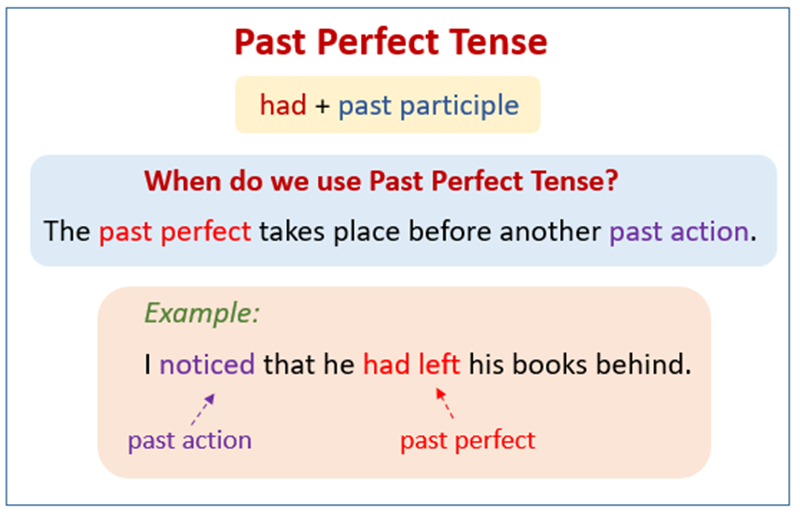
เราหวังว่าบทความนี้จะช่วยให้คุณเข้าใจอดีตกาลสมบูรณ์อย่างชัดเจน เพื่อหลีกเลี่ยงความผิดพลาดที่ไม่จำเป็นในการเขียนหรือการพูดของคุณ อีกทั้งคุณยังสามารถสำรวจแหล่งเรียนรู้ไวยากรณ์และคำศัพท์เพิ่มเติมได้ฟรีผ่านสื่อการเรียนของ Monkey



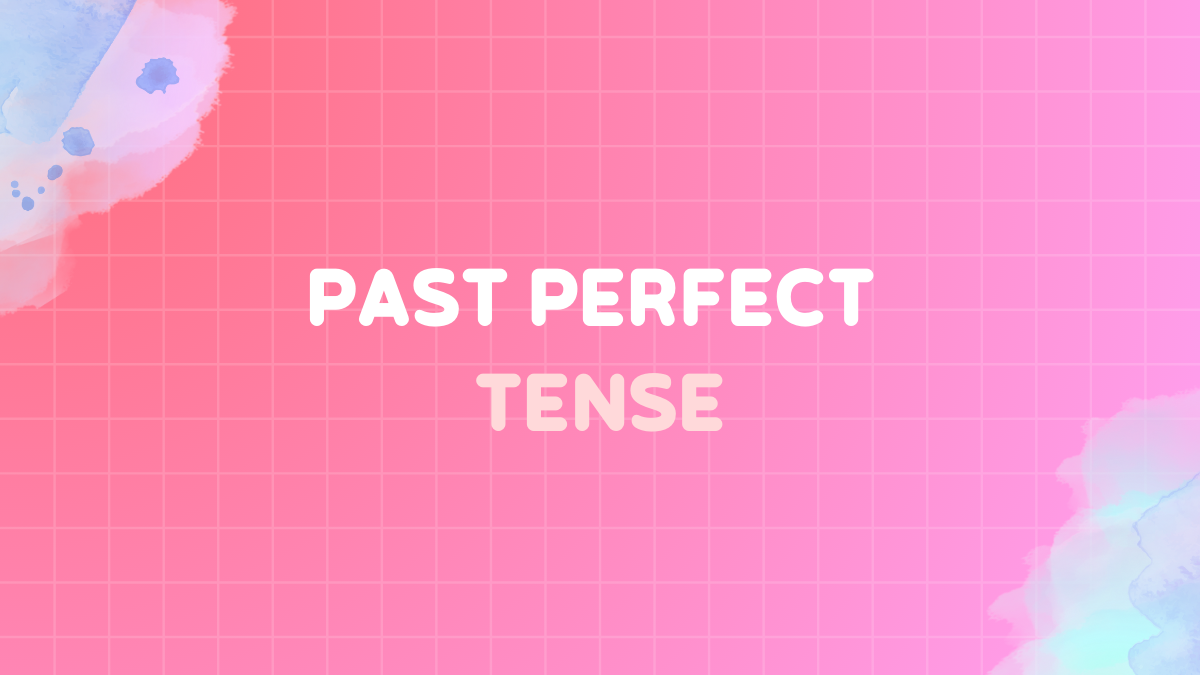
.png)
